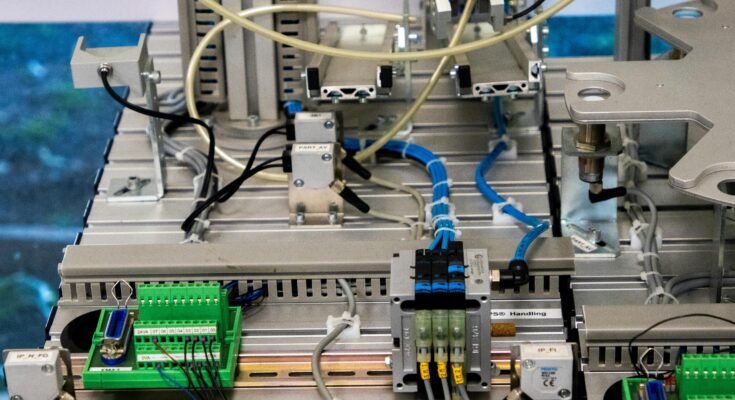Introduction
The software industry is always changing, with new tools advancing efficiency, security, and innovation. As we enter 2025, a more recent assortment of technology is beginning to inform the outlook for software development. Here are emerging technologies in the software industry for 2025 that organizations and developers should be paying attention to.
1. Artificial Intelligence (AI) and Machine Learning (ML) Evolution
AI and ML have already begun revolutionizing software development protocols with smart automation, enhanced data analytics, and user personalization. By 2025, new developments in artificial intelligence-assisted coding tools and automation testing tools will enhance the efficiencies achievable with software development overall.

2. Quantum Computing Advancements
Quantum computing is no longer a hypothetical idea and is becoming more widely practical at solving complex problems, developing algorithms that support cyber security, financial modeling, and scientific simulations. Organizations such as Google and IBM continue to advance quantum computing programs.

3. Edge Computing for Quicker Processing
As IoT and 5G take hold in the marketplace, edge computing is gaining traction through data processing at or near the source of the data. This limits the time for processing data as well as the reaction time for real time data analytic use cases in industries such as healthcare, manufacturing, and smart cities.
4.Blockchain Development Beyond Cryptocurrency
Blockchain development is spreading beyond finance and cryptocurrency applications. In 2025, we will see even broader application of blockchain technology in supply chain, digital identity verification, and decentralized applications (dApps) that allow secure and transparent transactions between parties.
5. Low Code and No Code Tools
The availability of low-code and no-code platforms has rendered software development easier for less-technical users. Making app development easier, lowering costs, and speeding delivery will be beneficial across all different types of businesses in 2025.
6. Cybersecurity
Cyber threats continue to evolve and with that brings software security to the forefront. In 2025, we will see rapid deployment of open-source artificial intelligence (AI) tools for threat detection, zero trust security frameworks, and digital identity verification becoming the norm as they contribute to protecting sensitive data and networks.

7. The Metaverse and Augmented Reality (AR)
Borders blending of physical and digital worlds are becoming the backbone of how we interact digitally. Software solutions will continue to evolve to support and enhance immersive experiences. We will see more AR-powered applications in the market this year, as they continue to grow in popularity for retail (more engaging shopping), education (more engaging courses), entertainment (immersive gameplay) and as meeting and remote collaboration solutions (of different styles and requirements).
8. Sustainable and Green Software
Sustainable practices are gaining traction across the tech industry, needing energy-efficient algorithms, conduct carbon-conscious and carbon-minimum cloud computing, and eco-friendly data centers will be widespread by 2025, as responsible software development practices become the norm.

Conclusion
The most recent technologies from the software industry for 2025 are advancing the boundaries of innovation, automation, and security. The ability to follow these trends will allow businesses and developers to adjust to the rapidly changing digital landscape. Utilizing these technologies will ultimately secure a competitive advantage and long-term success in the software industry.



